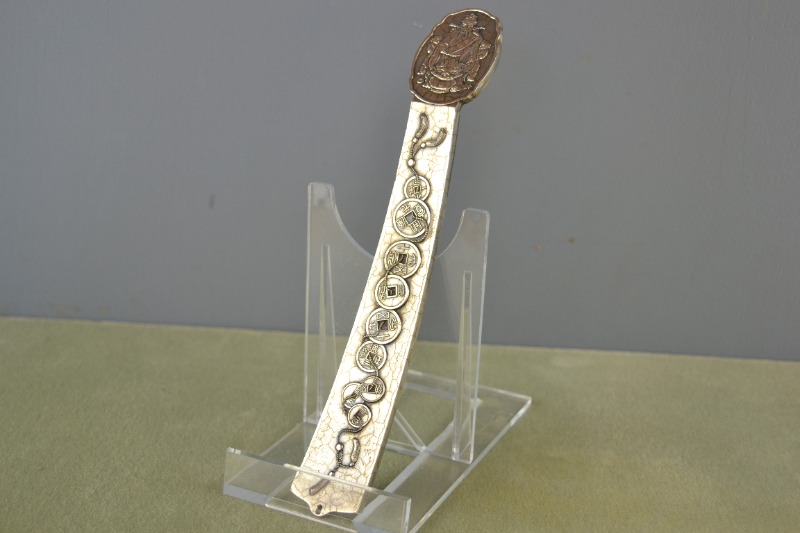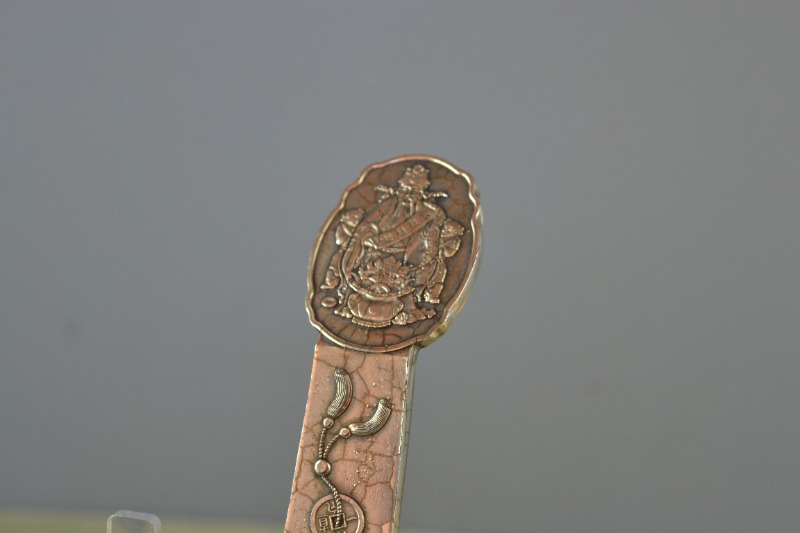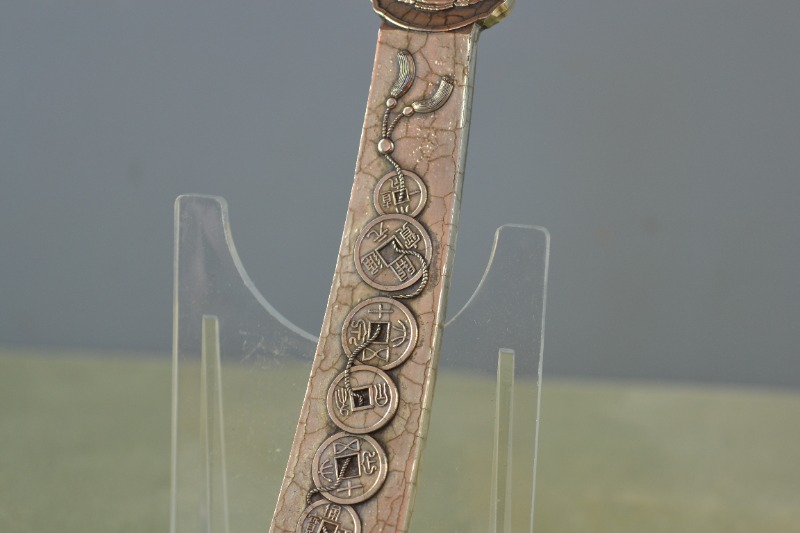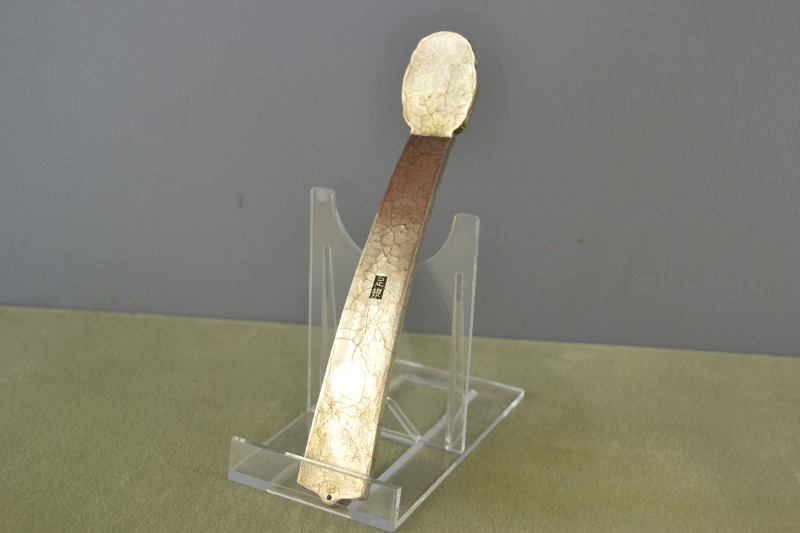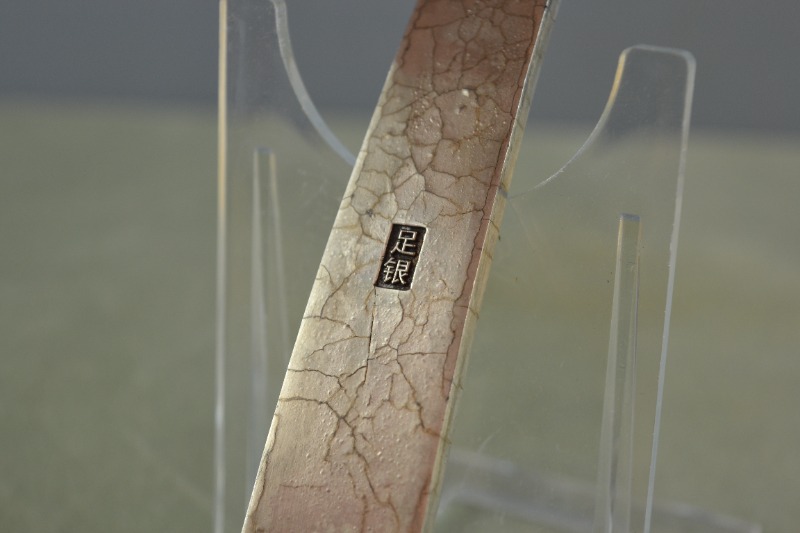Chinese Silver Ruyi or Sceptre depicting the God of Wealth, Caishen, and Cash Coins, Late 19th or Early 20th Century
Age:
late 19th/Early 20th century
Material:
Chinese Silver
Dimensions:
Length: 20cm
Shipping:
Standard Parcel
Price:
£ 150
This item is available to view and buy at:
Carse of Cambus
Doune
Stirlingshire
FK16 6HG
A Ruyi is an object that serves as a ceremonial sceptre in Chinese Buddhism or a talisman symbolizing power and good fortune in Chinese folklore. These sceptres were traditionally presented as birthday gifts.
Marked ‘Zu Yin’ or ‘pure silver’, typically sterling quality or 950. It tested as silver.
Decorated with the figure of the Caichen. The Civil Caishen governs wealth attained through intellect, virtue, and governance. The most well-known figure in this is Bi Gan (??), a loyal minister from the Shang Dynasty. He was executed for opposing the corrupt king, and over time, his wisdom and integrity led to his deification as a god of wealth. The Civil Caishen is typically worshiped by scholars, officials and accountants. He is often depicted in scholar’s robes, holding scrolls or a ruyi sceptre, symbolizing wisdom and authority.
In Chinese, the meaning of a coin (??, yìngbì) can range from a physical object of wealth and currency to a symbol of prosperity, good fortune, and the harmony of heaven, earth, and humanity, a concept represented by the coin‘s round shape and central square hole. Chinese cash coins were believed to bring good luck and were used in Feng Shui, often tied with red string and mystic knots to empower their energy.

